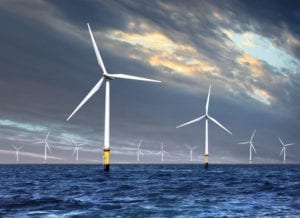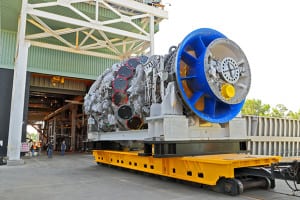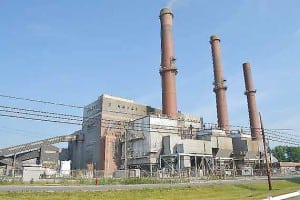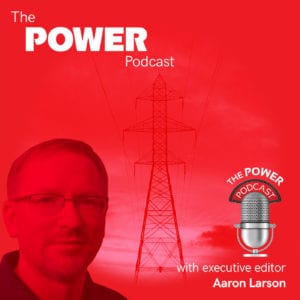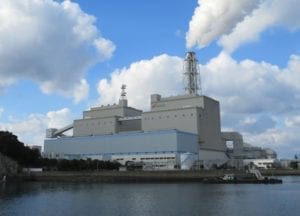Commentary
-
Commentary
How Energy Companies Can Respond Now and Plan for the Future
Energy companies are used to weathering disruption of all kinds. And during this incredibly challenging time, we are now more than ever relying on energy companies for the safe access to, and delivery of, power, gas, water, and other essential services. As governments around the world enact drastic measures to slow transmission of the COVID-19 […]
-
Cybersecurity
Cybersecurity Is More Important Than Ever Due to COVID-19
The COVID-19 outbreak has forced many companies to change the way they conduct operations. Leaders have had to divide employees into essential and non-essential categories. Essential employees must report to
-
Legal & Regulatory
Solving Issues of Power Deliverability for Offshore Wind Generation
Offshore wind generation could be a game-changer for U.S. generation—tremendous size, scalability, high capacity factors, zero-carbon, zero-cost fuel, and a proven track record in the UK and Europe. The
-
Plant Design
Rethinking Redundancy Design Guidelines in the Power Industry
The power industry is undergoing massive transformational change with the emergence of renewables, battery storage, smart grids, Internet of Things, Industry 4.0, and more. Perhaps the timing is right to
-
News
Construction of Power Facilities Is ‘Essential’ in California
Ahead of most of the U.S., California state and local officials in the first weeks of March adopted some of the earliest and strongest steps to restrict movement and close non-essential businesses in order to fight the spread of the COVID-19 disease. One of the key challenges in implementing these “shelter-in-place” orders was how to […]
-
Commentary
Motivating and Engaging Your Remote Workforce
Dr. Harold Hardaway and Shannon Hernandez / Cardigan With only a day’s or two notice, organizations found themselves required to send their folks home and set up remote work protocols. Employers and employees alike were quickly learning the nuances of Zoom meetings, with catchphrases like, “I think you’re on mute,” and “Is it your WiFi […]
-
Commentary
Looking Ahead: It’s Time to Plan for and Build a Robust, Sustainable U.S.-led Recovery
While scientists and health professionals huddle with public officials to determine the best course forward to combat COVID-19 and relax social distancing, more of our leaders must address the need to quickly create high paying, sustainable jobs—lots of them. COMMENTARY Frankly, the need has never been greater. Regardless of political ideology, our politicians must put […]
-
Gas
Natural Gas and Renewables as Natural Partners, Especially in Challenging Times
Earth Day is normally when we honor the headway made in advancing environmental and climate goals, while also reflecting on the challenges that remain before us. However, this year our society was caught up in a pandemic-induced economic downturn that has left Americans focused squarely on sensible preservation of ourselves, our families, and our way of […]
-
Technology
Paralyzed or Catalyzed? Servicing the Energy Transition
One of the more memorable experiences from my years with GE’s renewable energy business was managing through a growth spurt in the wake of the 2008 financial crisis. From 2009–2012, U.S. installed wind capacity more than doubled, from 25 GW to 60 GW. The 14 GW installed in 2012 remain a single-year record. It is no […]
-
Renewables
Powering the Future: Renewables, New Technology, and Diversification Are Forecast for Energy Sector in 2020 and Beyond
2020 will be a year dominated by environmental issues. Governments are under increasing pressure from climate activists and protest groups to address carbon emissions and reduce fossil fuel consumption. The effect of this scrutiny has been largely felt in the energy sector. This decade organizations within this industry will have to manage new environmental taxes […]
-
Distributed Energy
2020: A Moment of Truth for Utilities
The start of a new decade marks a critical moment for utilities. As the pace of change accelerates, industry leaders are facing choices that will determine which companies prosper in the new competitive landscape and which languish as slow-growth commodity businesses. West Monroe’s 2020 Energy and Utilities Outlook provides a guide to planning for a […]
-
Gas
Our Response to COVID-19: Helping the World Power Through
This moment is like nothing we’ve seen before in our lifetimes—impacting all our communities and disrupting lives everywhere. We are all concerned for our loved ones and our future. In our business, given the nature of what we do and, in turn, the basic but essential actions we help enable others to do—turn on the lights, refrigerate […]
-
O&M
ELECTRIC POWER Conference Postponed
The world has become a very different place over the past few months with the outbreak of a new coronavirus—COVID-19. The virus has forced travel bans and literal lockdowns in several countries. The NCAA and
-
Commentary
PURPA Modernization Promises Sweeping Changes for Utilities
More than 40 years ago, small power production facilities were germinated, fertilized, and have continued to blossom under the Public Utility Regulatory Policies Act (PURPA), a federal law passed in 1978 as a
-
News
Why We Need More Public Investment in Energy Storage Technology
When three scientists won the Nobel Peace Prize last year for their work on lithium-ion batteries, The New York Times was one of many outlets that drew the connection between improved energy storage and the
-
News
Safety Innovation Creates New Opportunities for Energy Companies
Innovation in worker safety may not be a top priority for some companies, given all the other business concerns managers must focus on, but a culture of listening to workers and identifying ongoing
-
Commentary
Trump’s Attempt to Bring Sanity to a Torturous Environmental Review and Permitting Process
The Council on Environmental Quality (CEQ) proposed changes to the National Environmental Policy Act (NEPA) regulations to promote “efficient, effective, and timely” NEPA review by federal agencies (85
-
News
Fast Fixes to California’s ‘New Normal’ of Power Outages
Experts say the solution is simple: increase the role of distributed renewables and deploy energy storage-based microgrids throughout the state. As California continues to cope with looming scheduled blackouts, the harsh reality is that not only is this the new normal for citizens and businesses on the West Coast, but it could remain that way […]
-
News
The New Due Diligence: Understanding the Climate-Related Vulnerabilities of Our Infrastructure
Rich Sorkin, CEO of Jupiter Intelligence As the reality of climate change begins to soak in, enterprises, organizations and governments around the globe are trying to get a handle on the economic and social implications of rising temperatures and sea levels. One area most immediately threatened by climate change—and one that hasn’t received nearly enough […]
-
Commentary
Energy Storage—Operational Versatility Causes a Regulatory Identity Crisis
The next decade could belong to energy storage. Project development costs are dropping. Enhanced state and corporate focus on climate-related issues is producing more opportunities for renewable generation and
-
Coal
A Closer Look at Coal Power Plant Impacts
When I see estimates of premature deaths attributable to coal-fired power plants, I usually take the data with a grain of salt. It’s not that I don’t trust researchers to do their best to calculate the
-
Carbon Capture
Policy Support for Carbon Capture Critical to Clean Energy Future
Analysis by both the Intergovernmental Panel on Climate Change and International Energy Agency shows that achieving a zero-carbon energy system by 2050 will require large-scale deployment of carbon capture
-
Commentary
2020 – A New Energy Era Begins, and Storage is Key
This last year of the decade proved to be a pivotal year for energy storage technology, as major developments underscored why it is so vital for energy markets. Events such as widespread power outages and transmission issues on a global scale have led to the precipitous rise in energy storage deployments. The energy industry has […]
-
IIOT
Technology’s Role in Shaping 2020—and Beyond
In the year 2020, the energy sector will continue to undergo major changes. From doubling-down on alternative energy sources—as the world places more importance on sustainability—to the large number of workers retiring in droves, there will be substantial shifts in the way energy companies, including power generators and oil and gas producers, prioritize in the […]
-
Commentary
Structural Effects of Climate Change on the Utility Business
Developers and other sellers of electricity have traditionally viewed utilities as creditworthy counterparties. Utilities are longstanding institutions that provide a public service and receive a regulated
-
Gas
Why America Must Let Go of Coal and Avoid Renewable Subsidies
The 2019 United Nations Climate Change Conference (COP25), held in December in Madrid, Spain, showcased politicians and activists vying for the title of the world’s climate savior. In particular, youth
-
IIOT
The Standards Cheat Sheet: What You Need to Know About the IEEE Standards Process
IEEE 802 standards are used but not often thought of in our daily lives—IEEE 802.3, Ethernet, IEEE 802.11, Wi-Fi, IEEE 802.15.4, Wi-SUN, etc. Despite these standards playing a role in almost every piece of technology we own, we have a limited understanding of how they’re created. For mission-critical entities who are reliant on IEEE 802 […]
-
Markets
Is Carbon Pricing the Key to a Clean Energy Future? [PODCAST]
The New York Independent System Operator (NYISO) has proposed incorporating the social cost of carbon into the wholesale price of electricity. According to an October-released study conducted by the consulting firm Analysis Group, “A carbon price in NYISO’s competitive wholesale power markets can help deliver New York’s clean-energy transition in faster, cheaper, more reliable, more […]
-
Commentary
International Business: Before You Enter a New Market, Do Your Due Diligence
As an attorney who has spent the majority of his career litigating and settling international commercial disputes, I have experienced several instances where U.S. companies jump at the opportunity to expand
-
Commentary
Hydrocarbon Molecules Know No Borders: The U.S.-Mexico Natural Gas Dilemma
Natural gas traders once spoke of the North American continent as a potential seamless natural gas trading market, where market synergies could be perfected and hydrocarbon molecules could flow freely to the


